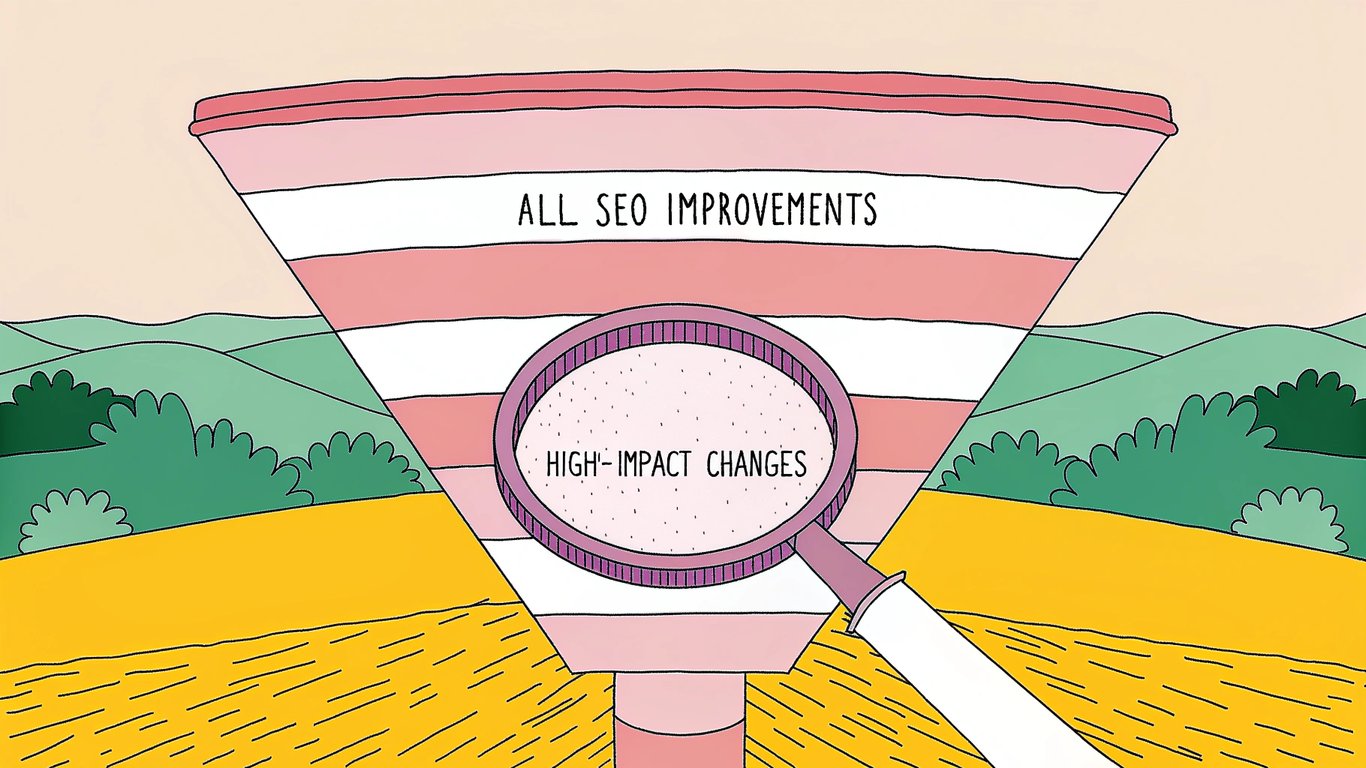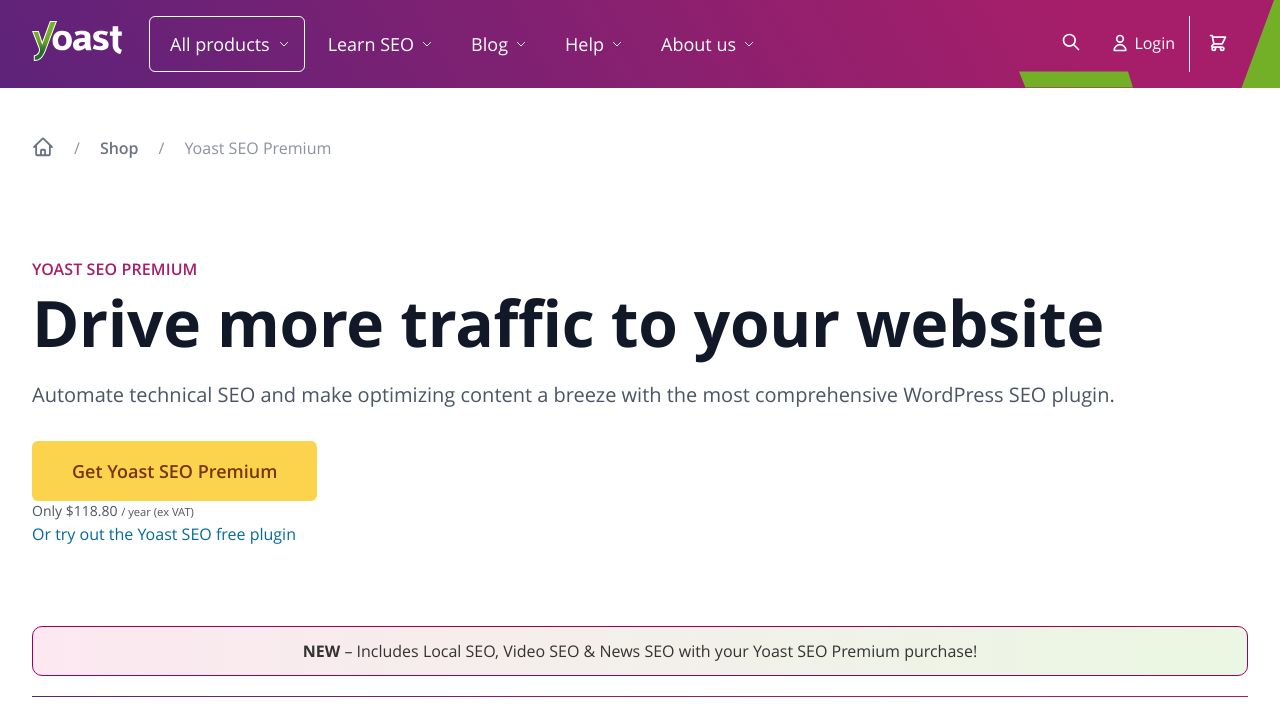AI content has fundamentally changed how we approach SEO. If you're running a WordPress site that publishes AI-generated material, you're probably wondering how to improve SEO performance while maintaining quality standards.
The reality is that search engines don't inherently penalize AI content. But they do reward content that demonstrates genuine value, expertise, and user focus. This creates unique opportunities for WordPress sites willing to take a strategic approach.
Why AI Content Needs Special SEO Attention
AI-generated content often lacks the natural variations and personal touches that search engines associate with high-quality material. Without proper optimization, AI content can feel generic and fail to establish the expertise signals that Google values.
The biggest challenge isn't the AI generation itself. It's ensuring your content demonstrates real value and expertise rather than just filling space with words. Search engines have gotten remarkably good at identifying thin, low-value content regardless of how it's created.

Google's Stance on AI Content and E-E-A-T
Google's official position is clear: they don't care how content is created, only whether it's helpful to users. The E-E-A-T framework (Experience, Expertise, Authoritativeness, Trustworthiness) applies equally to AI and human-generated content.
This means your AI content needs to demonstrate real expertise and provide genuine value. Simply generating thousands of pages won't work if they don't meet user needs or show subject matter knowledge.
WordPress Advantages for AI Content SEO
WordPress powers over 43% of the internet for good reasons. Its clean codebase, extensive plugin ecosystem, and flexible content management capabilities make it ideal for optimizing AI content at scale.
- Built-in SEO-friendly URL structures
- Extensive plugin ecosystem for optimization
- Flexible custom post types and taxonomies
- Strong community support and resources
Priority Framework: What to Tackle First
Not all SEO improvements are created equal. When you're working with AI content, you need a clear prioritization system that focuses on high-impact changes first.
The 80/20 Rule for AI Content SEO
Focus on the 20% of efforts that drive 80% of your results. For AI content sites, this typically means:
- Technical SEO fundamentals (site speed, mobile optimization)
- Content quality improvements (adding expertise signals)
- Strategic internal linking
- User experience optimization

Quick Wins vs. Long-term Strategies
Separate your SEO tasks into immediate actions and strategic initiatives. Quick wins (0-30 days) include plugin installations, basic optimizations, and content enhancements. Long-term strategies (30+ days) involve comprehensive content audits, site architecture improvements, and advanced technical optimizations.
| Quick Wins (0-30 days) | Long-term Strategies (30+ days) | Impact Level |
|---|---|---|
| Install SEO plugin | Content architecture overhaul | High |
| Optimize images | Advanced schema implementation | Medium |
| Fix broken links | Comprehensive content audit | High |
| Add meta descriptions | Custom post type optimization | Medium |
Resource Allocation Matrix
Your resource allocation should depend on site size and content volume. Small sites (under 100 pages) should focus on content quality improvements. Medium sites (100-1000 pages) need systematic optimization processes. Large sites (1000+ pages) require automated solutions and strategic prioritization.
Technical SEO Quick Wins for WordPress AI Content Sites
Technical SEO forms the foundation of your optimization efforts. These improvements help search engines crawl, understand, and index your AI content more effectively.
Essential WordPress SEO Plugins Setup
Start with a comprehensive SEO plugin like Yoast SEO or RankMath. These plugins handle basic optimization tasks automatically and provide frameworks for optimizing individual pieces of content.
Configure your plugin to automatically generate XML sitemaps, optimize meta tags, and handle technical SEO elements. This creates a solid foundation for your AI content optimization efforts.
Site Speed Optimization for Content-Heavy Sites
AI content sites often struggle with performance due to high content volumes. Implement caching solutions like WP Rocket or W3 Total Cache to improve load times.
- Enable browser caching
- Optimize images with compression plugins
- Use a content delivery network (CDN)
- Minimize CSS and JavaScript files
Schema Markup for AI Content

Structured data helps search engines understand your content context. Implement Article schema for blog posts, FAQ schema for question-based content, and Organization schema for your site's main pages.
Most SEO plugins include basic schema functionality, but you might need additional tools like Schema Pro for advanced implementations.
XML Sitemaps and Crawl Budget Optimization
Large AI content sites need strategic sitemap management. Create separate sitemaps for different content types and prioritize your most important pages. Use the sitemap priority and changefreq attributes to guide search engine crawling.
Content Optimization Strategies for AI-Generated Material
Raw AI content rarely performs well in search results. You need systematic processes for enhancing AI-generated material with human expertise and optimization.
The Human-AI Content Optimization Workflow
Establish a review process where human editors enhance AI content with personal insights, current examples, and expertise signals. This might include adding personal anecdotes, updating statistics, or incorporating recent industry developments.
Don't just publish AI content as-is. The most successful sites treat AI generation as a starting point, not a finished product.
Keyword Integration and Natural Language Processing
Modern SEO requires natural keyword integration rather than forced placement. Focus on semantic relationships and user intent rather than exact keyword density. Use variations and related terms throughout your content.
AI content often struggles with natural keyword placement. Review and adjust keyword usage to feel more conversational and user-focused.
Content Depth and Expertise Signals
Add depth to AI content through specific examples, case studies, and expert insights. Include author bios, cite authoritative sources, and demonstrate real-world experience with the topics you're covering.
- Add specific examples and case studies
- Include expert quotes and insights
- Cite authoritative sources
- Demonstrate practical experience
Internal Linking Strategies for AI Content

Create systematic internal linking that helps users and search engines navigate your content. Link to related articles, supporting resources, and deeper explanations of concepts mentioned in your AI content.
Use descriptive anchor text that clearly indicates what users will find when they click. This improves user experience and helps search engines understand your content relationships.
WordPress-Specific SEO Enhancements
WordPress offers unique features that can significantly improve your AI content's SEO performance when used strategically.
Custom Post Types and Taxonomies for Content Organization
Organize AI content using custom post types for different content categories. This improves site architecture and helps search engines understand your content structure. Create custom taxonomies for topics, industries, or content formats.
WordPress Theme Optimization for SEO
Choose themes optimized for speed and SEO. Look for clean code, mobile responsiveness, and built-in schema markup. Popular SEO-friendly themes include GeneratePress and StudioPress themes.
Database and Content Management Optimization
Large AI content sites need database optimization to maintain performance. Use plugins like WP-Optimize to clean up unnecessary data and optimize database tables regularly.
Monitoring and Measuring Success
Tracking performance is crucial for understanding what works and what doesn't with your AI content SEO strategy.
Key Performance Indicators for AI Content SEO
Monitor organic traffic growth, keyword rankings, and user engagement metrics. Pay special attention to bounce rate and time on page, as these indicate whether your AI content truly serves user needs.
- Organic traffic growth
- Keyword ranking improvements
- User engagement metrics
- Content performance by topic
Google Search Console Setup and Monitoring
Use Google Search Console to monitor how search engines interact with your AI content. Watch for crawl errors, indexing issues, and performance trends that might indicate problems with your optimization approach.

Content Performance Analysis and Iteration
Regularly analyze which AI content performs best and identify patterns. Use this data to improve your content creation and optimization processes. Focus on updating and improving underperforming content rather than just creating more.
Advanced Tactics and Future-Proofing
As AI content becomes more common, you need strategies that will remain effective as search algorithms evolve.
AI Detection and Transparency Best Practices
While Google doesn't require AI content disclosure, transparency can build trust with users. Focus on demonstrating value rather than hiding AI usage. The key is ensuring your content genuinely helps users regardless of how it's created.
Scaling SEO for High-Volume AI Content Production
Large-scale AI content requires systematic optimization processes. Develop templates, automated quality checks, and batch optimization workflows. Consider using tools that can optimize multiple pieces of content simultaneously.
Preparing for Future Algorithm Updates
Build resilient SEO strategies focused on user value rather than gaming search algorithms. The sites that survive algorithm updates are those that genuinely serve user needs and demonstrate real expertise.
Focus on creating content that would be valuable even if search engines didn't exist. This user-first approach provides the best protection against future algorithm changes and ensures long-term SEO success.

